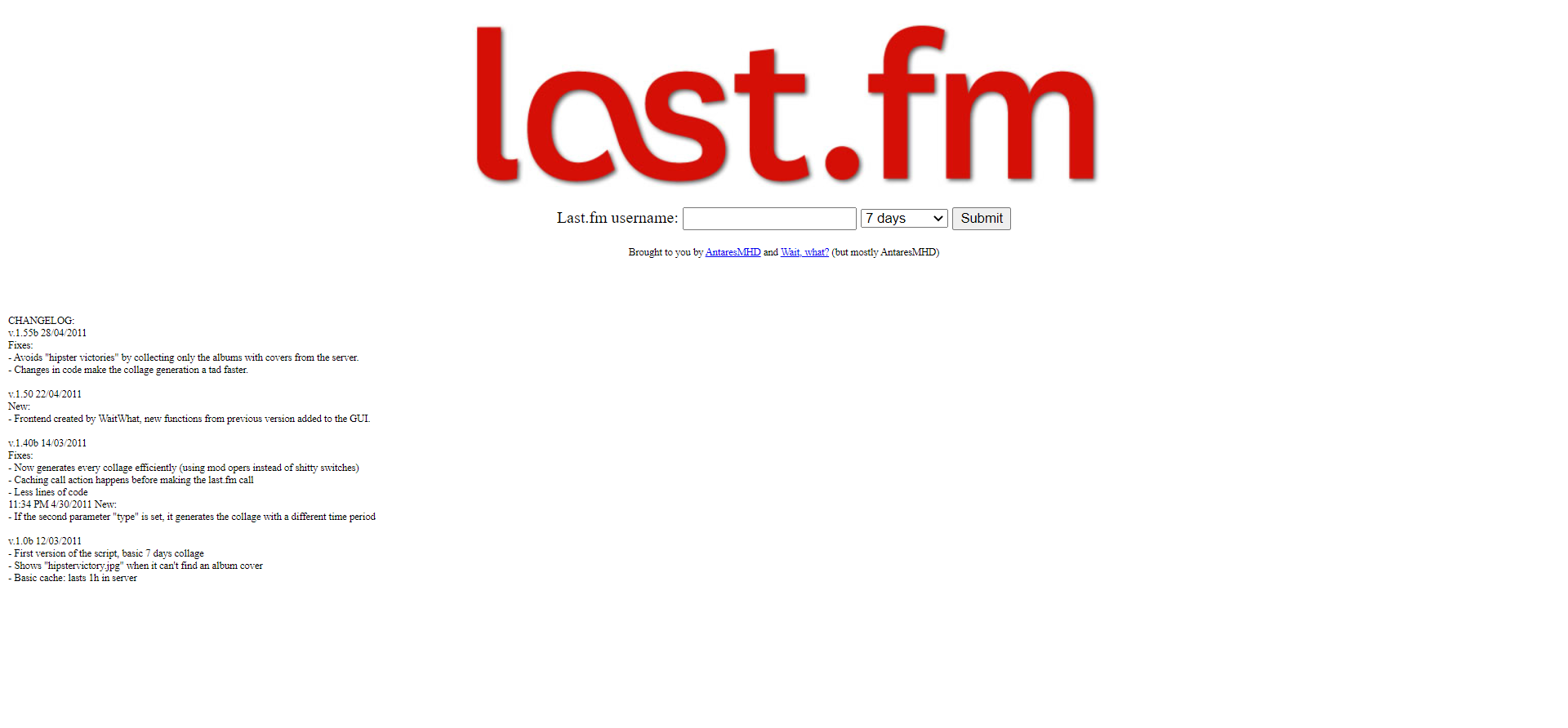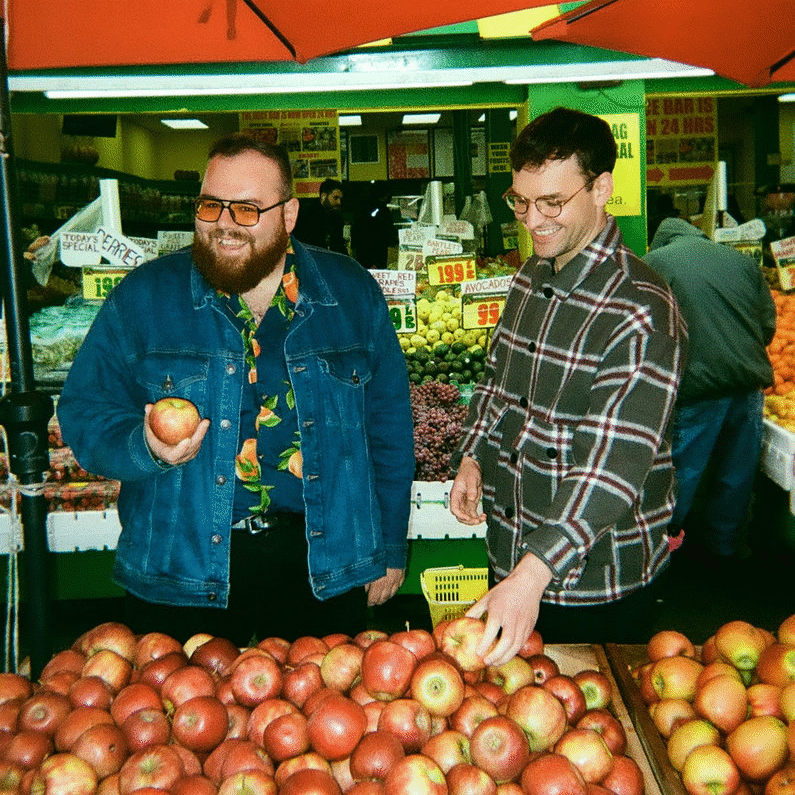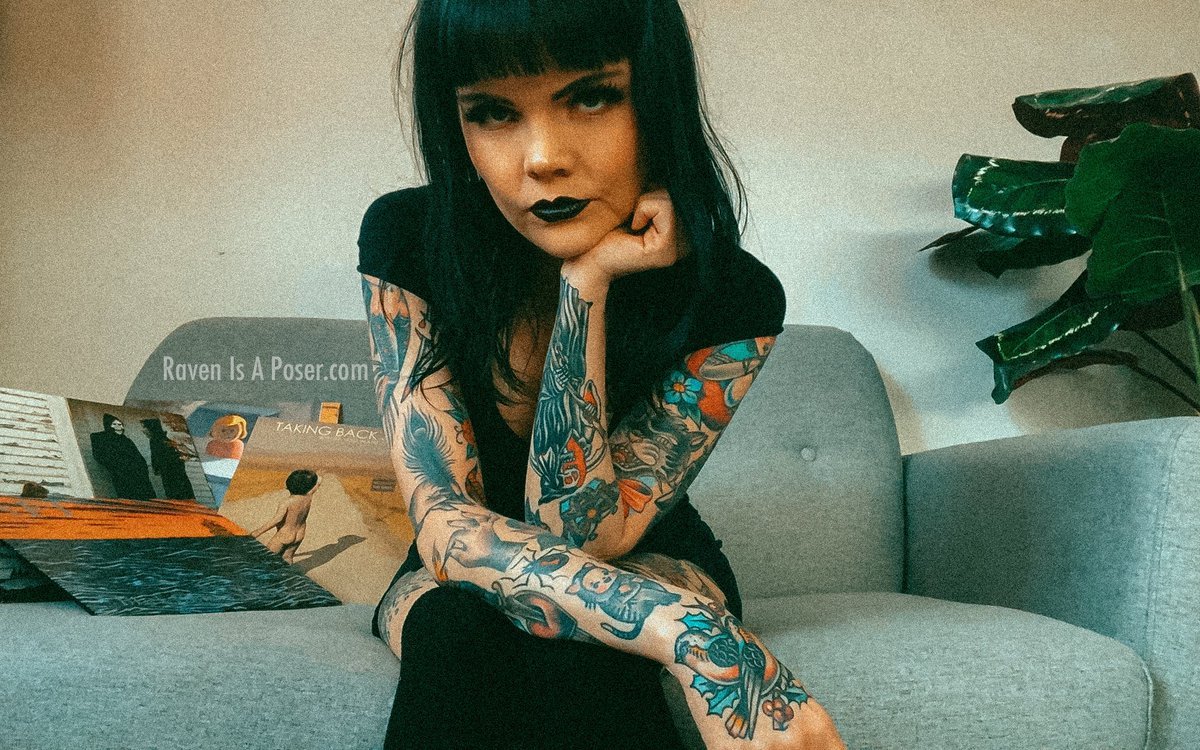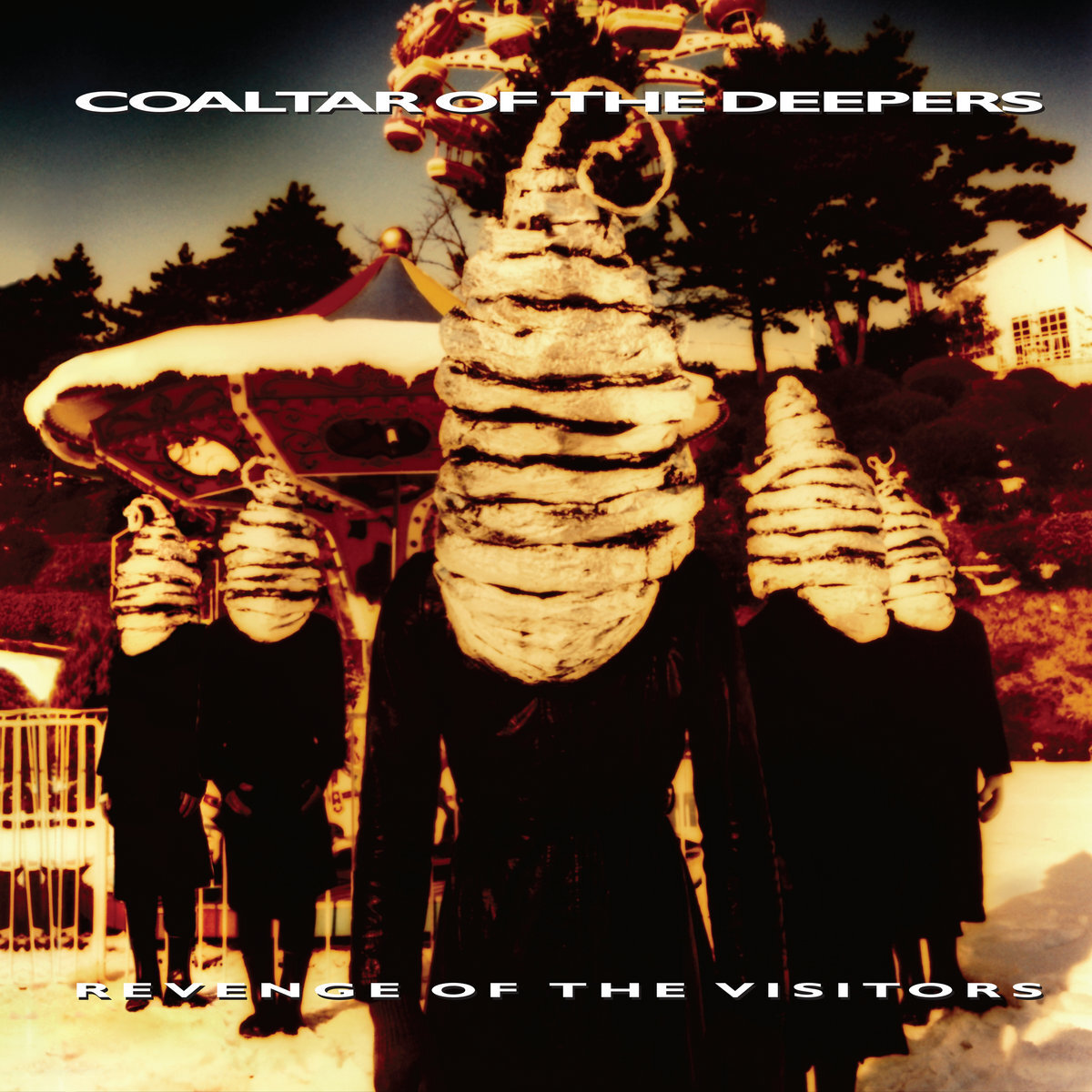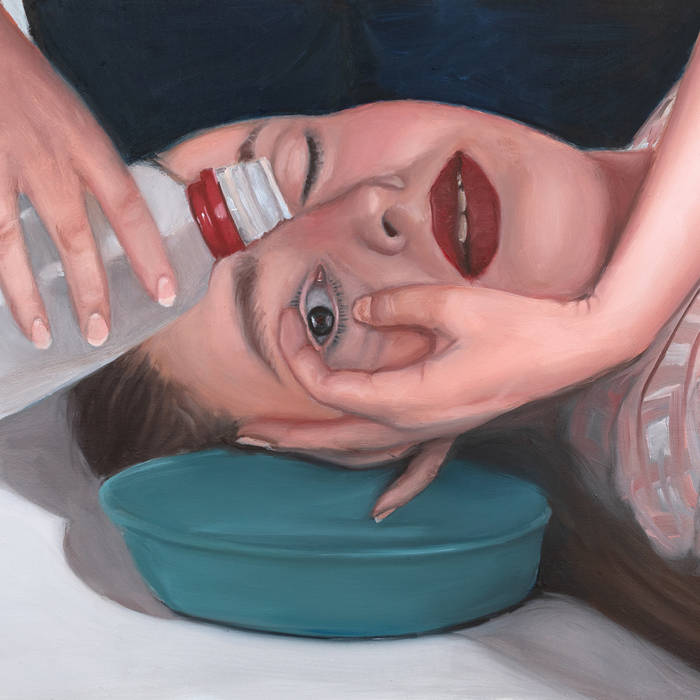Your Life in a Grid: An Interview with the Owner of Tapmusic.net
/If you’re a music nerd on Twitter, you’re probably familiar with the deluge of images that get posted every Friday. A funky little 5x5 grid depicting the 25 albums that its owner listened to most over the last seven days. Sometimes people post a 3x3, other times a 4x4, but regardless of which combination they choose, the ritual and cadence are still the same; share what you’ve been listening to over the past week. It’s called 5x5 Friday.
There are a few different sites that can generate a collage like this, but the most popular is one called Tapmusic.net. The website is barebones, centered around a primary homepage with a singular function: to generate these charts.
When you visit the site, your eyes are most likely to be drawn towards the giant header near the top of the page proudly announcing “Last.fm collage generator” in big, 70-point font. Beneath it reads something of a mission statement: “Because what's the point in listening to music if you can't let others know?” The following sentence instructs the user what to do in a perfectly efficient way, with only one word of pride poking through the otherwise modest explanation. It reads, “Use our generator to create astonishing album collages based on your Last.fm charts!” And astonish us they do.
Every week, thousands of users flock to this website to type in their last.fm username and watch as Tapmusic renders an image that feels like a musical summation of their week. Sometimes the results surprise us; other times, they're perfectly on-brand. Either way, for a certain type of music geek, this weekly repetition has become a sort of hypnotic ritual. You made it to Friday? Time to celebrate with a chart! End of the month? Make a chart for the last 30 days! Trying to claw your way through the dregs of December? No better way to kill some time and send off the year than a big chart depicting the last 12 months!
There’s something endlessly fulfilling about this practice. If you listen to enough music, seeing the results of your listening habits splayed out in a perfectly lined-up little grid every week is practically guaranteed to release a splash of serotonin in your brain. And when people “like” your chart? Forget about it. Sometimes they spark discussion, sometimes an artist will retweet it, and sometimes your friends will clown on you for a bizarre record that made its way onto the last row. Anything can happen on 5x5 Friday.
At the beginning of 2022, I committed myself to a year-long Twitter thread dedicated to housing my monthly charts. There’s something incredibly satisfying about scrolling through that thread and seeing my own little year-in-review broken down month-by-month like that. To see my music journey over the past year on little squares all lined up like toy soldiers in a box. To see my life in a grid.
Tapmusic.net is a vital cornerstone of the online music community. An endlessly-renewable resource that allows anyone with the right accounts linked up to see their music taste in an instant snapshot. Weekly charts are a fast way to sing the praises of the artists and albums you like, transparently showing what the user has spent the most time listening to over the past week. It’s a celebration of music and a visually appealing way to show people what you like.
These grids also allow one to engage with other music fans almost instantly. Oh, you post your weekly chart on Twitter too? Odds are we could kill a good 10 to 30 minutes talking about music together if we ever met in real life. Odds are you’re a pretty solid follow. Even if we run in completely different circles, you’re probably at least a little bit of a music nerd like me.
The very first iteration of Tapmusic, circa 2011
Since 2010, Tapmusic has served a growing userbase, helping people share their listening habits in ways that few other platforms do. And all of this is free, funded mainly off a pay-if-you-want donation system.
The About page describes Tapmusic as “the web's premiere site for generating collages based on last.fm user history” and credits exactly three people. Or should I say three usernames. It lists, “The core team is comprised of silverhawk79 (administration, generator), AntaresMHD (generator), and xzwqt (design).” Each name links out to a corresponding last.fm page and nothing more. That’s how you know you’re dealing with real-deal music fans.
Tapmusic is a part of so many people’s weekly music routine, yet little is known about it other than the occasional update pinned to the top of the home page. I recently reached out via Tapmusic’s contact form to see if any of the creators would be interested in talking to me about the site’s history. The owner of Tapmusic, Aaron Hudspeth, quickly responded and was happy to sit down with me to discuss everything from his own music taste to what possible things lie ahead for the site. If you’ve ever wondered what it’s like behind the scenes of a niche online music fan fixture, then you’ve come to the right place.
SWIM: First off, how would you describe your music fandom? What kind of music are you into?
AARON HUDSPETH: I’m kind of all over the place, but I tend towards the heavier side of things. Thrice and Gojira top my charts, but I’ve also got a soft spot for Modest Mouse and The Cure. I try not to be a music snob, but I can be extraordinarily picky about finding new music to listen to.
SWIM: You’ve been using last.fm since 2006, what’s your history with that platform?
HUDSPETH: Honestly, I signed up because of 4chan. Back in the day, I was very active on the /mu/ (music) board under the name ‘Wait, what?’ (some people may still recognize that name!). I kept seeing threads posted about a site called last.fm and how it could track your music and give you recommendations, so I was intrigued. It did help me discover new music and make quite a few friends, and I’m glad I found it.
SWIM: The “About Us” page says you started Tapmusic back in 2010. What were the early days of this project like?
HUDSPETH: The early days were about as barebones as it could get. I was in an IRC chat with some other folks from 4chan, where I ended up meeting the creator of the original 3x3 script, Daniel (credited as AntaresMHD on the site). I offered to host the script on my server, which was otherwise sitting unused, and I created a quick n’ dirty interface for it. It was extremely basic, literally only an option to choose the time range and enter your username. The name Tapmusic actually came from a failed project from my early college days, where me and some friends thought we could create the next big music-based social media site. It ultimately went nowhere, but I kept the domain name for a few years juuust in case and ended up using it for this new collage site.
SWIM: How many charts does Tapmusic generate in an average week?
HUDSPETH: As a conservative estimate, I would say anywhere between 40,000 to 50,000, though that number spikes very heavily near the end of the year – on Dec 31st, there were over 28,000 generated in one day!
SWIM: What’s your day-to-day interaction with the site (if at all)?
HUDSPETH: The site itself is mostly self-sufficient, but I check in on the server at least once a day to see if any updates need to be installed or to check if anything looks like it is out of whack. Downtime for the site is extremely limited, as I keep a close eye on any potential problems and try to mitigate them before they become any bigger.
SWIM: How much music do you listen to, and how often do you use Tapmusic to generate your own charts?
HUDSPETH: I listen to music constantly in one form or another, but admittedly I don’t generate many collages of my own through Tapmusic – maybe once a month, just to get a broad overview of what I’ve been obsessing over.
SWIM: From the outside, you seemingly run this entire thing by yourself with minimal outside support or influence. Do you consider yourself DIY?
HUDSPETH: I would say so, yeah. I have resisted running ads for pretty much the entire life of the site, and only very recently decided to partner with an ad company to help with costs. I am very vigilant about making the site as user-friendly as possible, so I want to make sure any advertising is unobtrusive.
SWIM: Back in November, you posted a message that you were taking a break from monitoring the site for your wedding. How’s married life treating you?
HUDSPETH: Honestly, it’s been about the same as pre-married life! Not that that’s a bad thing – we had been together for nine years before deciding to finally tie the knot, so not much changed in terms of our relationship.
SWIM: When did you first decide to add a donation button to the site, and what have the results been like over time?
HUDSPETH: I believe it was about 7 or 8 years ago, and it was around the time I was able to modify the basic 3x3 script into a larger 10x10 version. At the time, our server was not nearly powerful enough to handle everyone generating a large collage like that constantly, so I decided I would make it a somewhat more exclusive feature to avoid overloading the site. Over time, donations have allowed me to upgrade the server to be more and more powerful.
SWIM: You recently made some Premium-only features like 10x10’s available to all users, so it seems Tapmusic is growing and “performing” well. When did you guys decide to implement this change, and why?
HUDSPETH: After discussing it a bit with Daniel and evaluating the performance of our current server, I decided that it would be able to handle the increased load. It was a fairly recent decision, put into place at the end of November 2022, actually. On top of that, I had recently acquired a (much) higher-paying job and didn’t feel right continuing to ask people for money to help with server costs. I’m not in this for any sort of profit, I just like providing a service for people to enjoy.
SWIM: Are you aware of the Topster Guy? In the past year, he’s posted some questionable conspiracy theorist messaging in the sidebar of his site, which, when contrasted with weddings and adding features, has led some people to some people consider him your “Wario.” Do all you music website guys know each other in real life?
HUDSPETH: I’m aware of him but don’t know much about him aside from his views – I very purposefully avoid using Tapmusic as any kind of a platform for my views because it doesn’t seem like the time or place to try and force it on anyone else. I have been contacted a few times in the past by people who are building their own collage sites, and I have helped them with advice or bits of code, but other than that, I don’t think I’ve been in contact with any other music website folks.
SWIM: The site is charmingly barebones, but a recent update claimed that you’ve been improving the service and plan on rolling out new features soon. Anything you can tease or let us know at this point? Will the site be getting updated more regularly in the future?
HUDSPETH: Yes! We are planning to make the collage page a bit more feature-rich, with integrated sharing tools and easier downloading. We also aim to implement a feature that will generate a text-based list of the albums in the collage as well, similar to Topster. We are also looking into bringing back artist-based collages, as, unfortunately, I had to remove that functionality a few years back due to changes on last.fm’s end. It may be making a return at some point!
SWIM: Do you view the site’s current straightforwardness as a design principle or just a byproduct of when and how it was created?
HUDSPETH: I view it as a design principle – I want it to be as easy to use as possible, with a very quick load time. People get frustrated if a site takes too long to load or has loads of popups or other distractions, so I like to keep Tapmusic clean and fairly sparse.
SWIM: What’s the long-term plan for Tapmusic? Any final thoughts? Charts forever.
HUDSPETH: Perhaps an app! Or a Discord bot? I plan to keep the site running for as long as humanly possible. I also want to thank everyone who has used the site over the years and shown their support – I literally could not have done it without you. Thanks!

